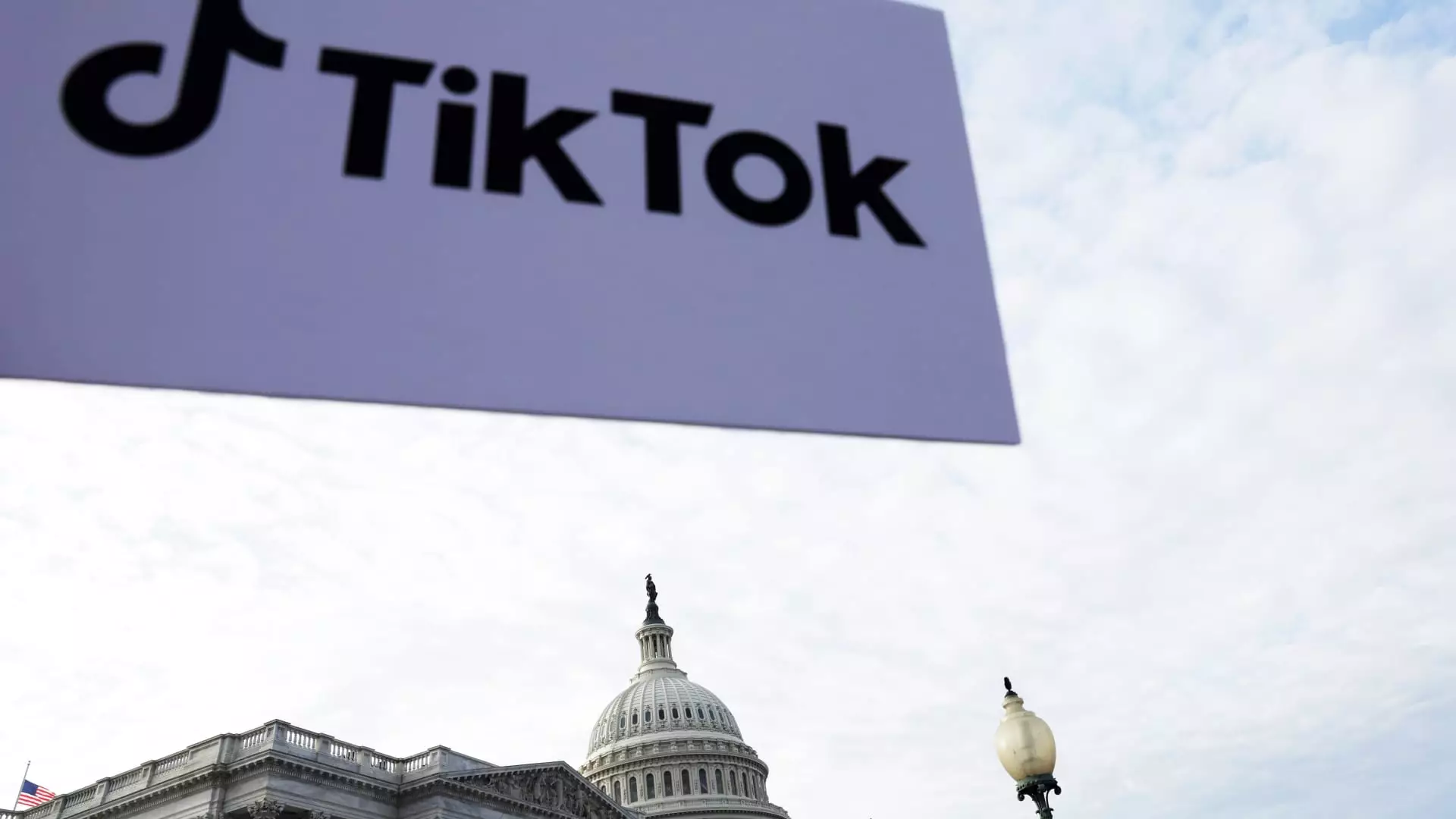In recent weeks, the tension surrounding TikTok, a popular social media platform owned by China’s ByteDance, has escalated significantly. As U.S. lawmakers express increasing urgency regarding national security concerns, the prospect of an effective ban on TikTok in the United States looms large. A pertinent decision was made by the U.S. Court of Appeals, reinforcing legislation that mandates ByteDance to divest its ownership of TikTok by January 19. Should they fail to comply, major tech giants like Apple and Google may be compelled to remove the app from their platforms.
The complexities of this situation are rooted in the broader context of U.S.-China relations, with concerns about data privacy and foreign influence driving the legislative actions. The Select Committee on the Chinese Communist Party has taken a proactive approach, emphasizing the responsibilities of app store operators in complying with the upcoming legal requirements. Reps. John Moolenaar and Raja Krishnamoorthi have highlighted the ramifications of this court ruling in their letters to Apple and Google executives, calling attention to their obligation to ensure the removal of TikTok from the U.S. marketplace should the deadline pass without a divestiture.
Legal Implications and Political Responses
The law in question embodies a stringent approach to regulating foreign applications deemed as threats to national security. The lawmakers articulated their stance clearly, indicating that without a qualified divestiture of TikTok from ByteDance, it would become illegal for Apple and Google to offer, maintain, or update the application within U.S. territories. This legal ultimatum places significant pressure on TikTok’s management, which has already received substantial time to address compliance issues since President Biden’s enactment of the original TikTok law months ago.
Interestingly, TikTok has voiced its concerns about the constitutionality of this law, claiming it violates the First Amendment rights of its 170 million American users. However, the judiciary has sided with legislation that prioritizes national security over the platform’s business continuity, reinforcing a narrative that places collective security above individual rights in this scenario. The company’s recent filing for an emergency injunction serves as a desperate attempt to stave off the impending restrictions, arguing that an enforced ban would result in massive economic repercussions for small businesses and creators who rely on the platform for income generation.
The Impact on Businesses and Creators
The economic implications of a TikTok ban are far-reaching. Many small enterprises and social media influencers derive significant revenue from their presence on the platform. TikTok has highlighted that a month-long prohibition could lead to a staggering loss of $1.3 billion in sales and earnings for these stakeholders. Such figures underscore the tangible impact of legislative decisions made at the geopolitical level, casting a spotlight on the interplay between national security legislation and economic vitality within the digital economy.
The situation is further complicated by political factors, especially as the impending inauguration of President-elect Donald Trump approaches. Trump’s earlier attempts to ban TikTok during his administration were met with resistance, and it remains unclear whether he will adopt a similar course of action following his January inauguration. Interestingly, his recent interactions with key investors in TikTok’s parent company suggest a potential shift in rhetoric—or at the very least, a nuanced position that could influence future policy decisions.
The TikTok predicament epitomizes a crucial junction where technology, legal frameworks, and international relations collide. As Congress continues to navigate the implications of this case, technology giants like Apple and Google find themselves in a precarious position. They are not only app store operators but also key players who could shape the future of social media in the U.S.
In the light of a possible ban, stakeholders—from lawmakers to tech companies and small business owners—must carefully examine the ramifications of their actions. Beyond the immediate question of TikTok’s operational status in the U.S., this scenario raises larger questions about data security, free speech, and the influence of foreign entities in American digital landscapes. As the deadline approaches, all eyes will be watching how this saga unfolds, reflecting broader societal attitudes toward technology and regulation.


Leave a Reply